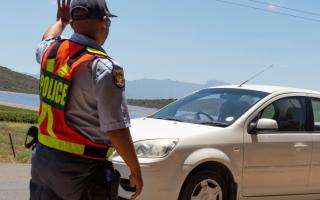
Know your rights
Pulled over? What are the police allowed to do?
It is almost time for the holiday season which sees people travelling on the road to their various holiday destinations. This is also the season of the roadblock and with many of us familiar with our rights when being pulled over by a traffic officer at a roadblock, some of us might not know that a traffic officer can legally confiscate property at a roadblock. This article will delve into more details about the rules and regulations of items that can be taken away from you by traffic officers as you make your way to your summer holiday destination.
Legislation makes it possible for police officials, such as traffic officers, to conduct roadblocks on South African roads. They are also allowed to search your vehicle and confiscate certain goods as part of their duties during a roadblock.
In South Africa, there are many reasons why a roadblock will be set up. Roadblocks are established to capture drunken drivers, and speeding vehicles, and remove unroadworthy vehicles on our roads. Police officials can also be on the lookout for motorists who have outstanding traffic fines and violations. However, they cannot arrest motorists for outstanding traffic fines, unless there is a warrant of arrest issued against the motorist for one of those outstanding fines. Roadblocks can also be for a specific reason, such as to catch vehicles that might be involved in the commission of a crime or to search for something specific like drugs.
Can a police official search and confiscate during a roadblock?
Generally, police officials need to have a warrant to search and possibly confiscate items from your vehicle. However, there are exceptions to this general rule:
> if a motorist is stopped at a roadblock;
> if the person from whom the item is being confiscated consented to the search; or
> if the police officer has reasonable grounds to believe that a warrant would be issued if s/he applies for it and obtaining a warrant first would defeat the ends of justice.
Police officials can also conduct a body search during a roadblock, as long as the search is performed by a police official of the same sex as the person being searched.
If specific items are looked for during a roadblock, such items can be confiscated if found. Police officials can also confiscate property that they suspect to have been illegally obtained or stolen, that they reasonably believe was involved in the commission of a crime, or items that are illegal for the motorist to have in their possession (such as unlicenced weapons and drugs).
If the vehicle itself falls within the abovementioned categories of items that can be confiscated, the police official will confiscate the vehicle and store it at the closest police impound until such time it can be lawfully released.
If the person alleges that an item is legally in their possession and not stolen, the police official can request for that person's consent to verify the legal status of that item. If the legal status has been confirmed, the item must be handed back to the person. Alternatively, the police official may give the confiscated item an identification mark and retain it in custody if circumstances require, such as to be used as evidence in a criminal trial.
If criminal proceedings continue in connection with the confiscated item, the court may make an order regarding what should happen to that item. It may be ordered that the item be returned to the owner or that it is forfeited to the State on the basis that it was found to have been used to commit a crime. If the person from whom the item was seized is not the accused in the trial, s/he has three years to bring a claim for compensation against the State if s/he can show that the item lawfully belonged to him/her and not the accused.
If no criminal proceedings continued in connection with the confiscated item or if it appears that the item is not required for evidence at a trial, the item should be returned to the owner. The owner will be notified by registered post at his/her last known address that s/he may collect the item. If the item is not collected within 30 days, it will be forfeited to the State.
Where are confiscated items stored?
Generally, confiscated items are kept at police stations where they remain in police custody. It is not always possible to keep vehicles at the police station, which is why vehicles are kept at police/state pounds. The vehicles are kept at a pound until the owner pays a fee to release the vehicle as it was impounded due to a violation of the law. It should be noted that an owner of a vehicle that was a victim of a crime (theft or hijacking) must not be required to pay for the release of their vehicle from the pound.
At a roadblock, the police officials must meticulously evaluate the vehicle before they can impound it. Should the vehicle have passengers in it at the roadblock, the officers will have to make arrangements to get the passengers home or to a safe location where they can get themselves home.
Lastly, should the motorist's vehicle or items be damaged whilst in police custody, the motorist can only hold the SAPS liable for the damages if they can prove negligence on the part of a police official or relevant department.
Whether you are heading to the coastal shores or remote safari adventure parks, be road savvy, be LegalWise and arrive alive.
Did you know…Police officials may conduct a search without a warrant during a roadblock.